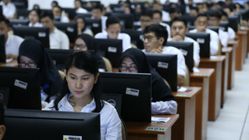As Nigeria faces significant economic and social hurdles, it’s crucial that our public policies be rooted in evidence, reason, and an appreciation of our distinctive national circumstances. A policy proposal now being discussed involves raising taxes on sugar-sweetened beverages (SSB). This initiative is spearheaded by globally backed groups like Corporate Accountability and Public Participation Africa (CAPPA), which claim that imposing higher duties on these drinks could curb non-communicable diseases (NCDs) such as obesity and diabetes. Although CAPPA’s latest publication titled “Junk on Our Plates” aims to present this increase in levies as a decisive move towards better community well-being, its proposals show a profound misinterpretation of the socio-economic factors influencing dietary habits within Nigeria.
Although discussions aimed at enhancing public health are crucial and ought to be promoted, they must simultaneously remain well-balanced, representative, and grounded in factual information—not based on externally sourced stories or partial statistics.
The World Health Organization (WHO) states that adults should keep their daily sugar intake below around 25 grams, equivalent to approximately six teaspoons. In Nigeria, the average person consumes roughly 8 kilograms of sugar each year, equating to about 21 grams per day—well under the WHO’s suggested threshold. Consequently, Nigeria doesn’t seem to be facing a significant problem with excessive sugar consumption. By comparison, people in the United States ingest over 68 kilograms of sugar yearly on average, which is more than eight times higher than what Nigerians typically consume.
Sugar Consumption Per Person Across African Countries:
Per Capita Sugar Consumption (kg/year) Country Comparison with World Health Organization Standard (25g/day average daily intake) Evaluation
Egypt 33-35 kg 90-95 g/day Consumed 3-4 times over the limit Severe
South Africa 25-30 kg 68-82 g/day More than 2-3 times above the limit Alarmed Status
Kenya 14–17 kg 38–47 g/day Slightly Over Moderate
Ghana 10-13 kg 27-35g/day Close to WHO limit Manageable
Nigeria: 8-10 kg; 22-27 g/day; Within safe limits
If most Nigerians aren’t indulging in too much sugar, then who precisely is grappling with obesity and non-communicable diseases linked to sugary sodas? It’s crucial we expand our health discussions past just blaming soft drinks and sweetened beverages. A thriving populace enjoys equitable access to nutritious foods, adequate knowledge about dietary decisions, and chances for exercise. Pinning the problem exclusively on a single type of product overstates what is fundamentally a multifaceted challenge.
Actually, numerous Nigerians, particularly those residing in remote and economically disadvantaged regions, find it challenging to have three square meals daily, let alone consume sugary drinks. Most Nigerian families are currently contending with increasing food prices (the rate was above 30% as of August 2024), joblessness, and reduced financial capability. It’s misleading and detached from reality to suggest that the country is overwhelmed by sugar consumption—this does not reflect the everyday struggles faced by most people.
In 2021, the federal government implemented an N10/liter levy on sugar-sweetened beverages (SSBs). Currently, there are proposals to hike this tax even higher. Such a move might lead to severe unforeseen outcomes, particularly affecting small enterprises that constitute the core of the beverage supply chain. As expected, informal sellers, convenience stores, merchants, and distributors would face significant pressure due to decreased customer purchases. The ripple effect could jeopardize numerous employment opportunities throughout the industry—from cane growers to manufacturing personnel and logistics providers.
It is intriguing how the local sugar industry, which the same administration is significantly supporting via the Nigeria Sugar Master Plan (NSMP), could be undermined. How do we encourage sugar production simultaneously with penalizing those who primarily use it?
Furthermore, international data regarding the effectiveness of Sugary Sweetened Beverage (SSB) taxes varies. In nations such as Mexico, Ireland, and the UK, these taxes have failed to bring about substantial, lasting decreases in obesity rates. Rather, they’ve prompted unforeseen outcomes including increased intake of more affordable but unchecked substitutes—many of which contain similar levels of sugar and may be potentially unsafe.
Instead of relying on punitive taxes, Nigeria could consider implementing incentive-based strategies to encourage healthier living. This might include nutritional education programs in educational institutions and neighborhoods, city planning designs that foster more physical activity such as walking, backing small-scale manufacturers of nutritious food options, and enforcing stricter guidelines for transparent food labeling.
It’s important to acknowledge that numerous beverage firms in Nigeria have started altering their offerings, putting resources into lower- and no-sugar alternatives, and launching educational initiatives for consumers. Imposing additional penalties on this industry won’t speed up advancements—it could undo them instead. The health issues facing Nigeria demand effective strategies. Taxes aren’t a universal fix; particularly with sugary drinks, they might be too imprecise an approach and end up causing more problems than they solve. We should avoid adopting policies directly from elsewhere without considering our specific circumstances here.
Internationally funded organizations such as CAPPA ought to champion health policies that are inclusive, evidence-based, and tailored specifically to Nigeria. We shouldn’t use euphemisms to avoid addressing issues head-on when discussing solutions.
Provided by Syndigate Media Inc. (
Syndigate.info
).



